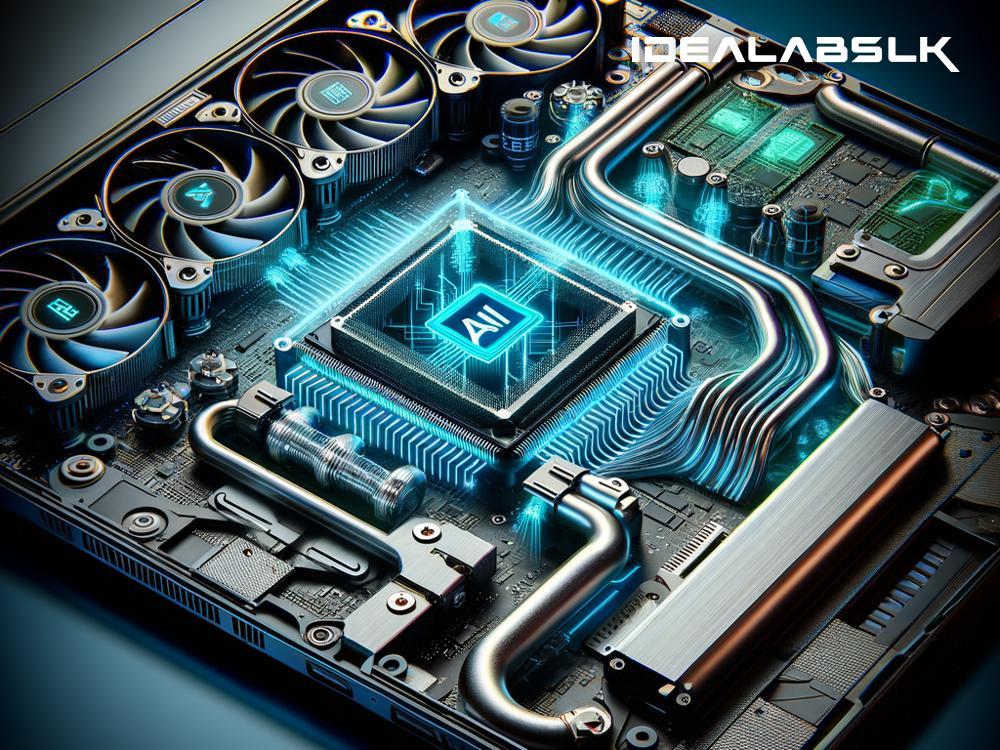Empowering Gaming Laptops with AI: The Future of Cooling Systems
In the realm of gaming laptops, one of the greatest challenges is managing heat. These powerful machines work hard to deliver immersive gaming experiences, but in doing so, they generate a lot of heat. Too much heat can lead to decreased performance, shortened hardware life, and a less enjoyable gaming experience. That's where artificial intelligence (AI) comes into play, transforming the way cooling systems operate in gaming laptops. Let's dive into how AI powers advanced cooling systems, keeping our gaming sessions cool without compromising on performance.
The Heat Challenge in Gaming Laptops
Gaming laptops pack a lot of power into a very compact space. They have high-performance processors and graphics cards that allow for stunning visuals and smooth gameplay. However, when these components work at full capacity, they generate a significant amount of heat. If this heat isn't managed properly, it can lead to thermal throttling (where the laptop reduces its performance to cool down), or in extreme cases, damage the internal components.
Traditionally, cooling systems in laptops have relied on fans and heat sinks to dissipate heat. These components work by physically moving air over the hot parts of the laptop, carrying the heat away. However, as games demand more power from the laptops, these traditional cooling methods struggle to keep up.
Enter AI: A Game-Changer for Cooling
Artificial intelligence brings a revolutionary approach to managing the heat generated by gaming laptops. AI can analyze the laptop's performance in real-time and adjust the cooling system dynamically, ensuring optimal performance without overheating. Here’s how it works:
-
Real-Time Monitoring: AI algorithms continuously monitor the temperature of key components like the CPU (central processing unit), GPU (graphics processing unit), and others. It also keeps tabs on the workload those components are under, processing whether the laptop is running a high-intensity game or a simple text editor.
-
Predictive Analysis: By analyzing past performance and temperature data, AI can predict future heat generation patterns. This foresight allows the cooling system to preemptively adjust before components become too hot.
-
Dynamic Cooling Adjustments: Based on the data collected and the predictions made, AI can make on-the-fly adjustments to the cooling system. It can control fan speeds, activate additional cooling measures, and even slow down the components slightly if needed to prevent overheating. The beauty of AI is that these adjustments are made in milliseconds, enabling the laptop to maintain peak performance without the user even noticing.
The Benefits Are Cool
The integration of AI into cooling systems brings several benefits over traditional methods:
- Enhanced Performance: By preventing thermal throttling, gaming laptops can run at peak performance for longer, delivering a smooth gaming experience even in the most demanding scenarios.
- Longer Hardware Lifespan: Keeping the components at optimal temperatures extends their life, giving gamers more value from their investment.
- Silent Operation: AI can optimize the fan speeds, ensuring they only run as fast as necessary. This means quieter operation, allowing gamers to immerse themselves in their games without the distraction of loud fans.
- Energy Efficiency: By regulating the cooling system smartly, AI reduces unnecessary power use, saving on energy bills and benefiting the environment.
The Future is Cool
As gaming continues to evolve, so too will the technology that supports it. AI is at the forefront of innovations, transforming not just cooling systems but the entire gaming experience. The future might bring even more intelligent cooling solutions, such as using AI to direct heat away from the laptop user or integrating advanced materials for better heat dissipation.
In conclusion, AI-powered cooling systems in gaming laptops represent a significant leap forward in addressing the heat challenge. By leveraging real-time data, predictive analysis, and dynamic adjustments, these systems ensure gaming laptops can deliver the best performance without the heat. As technology progresses, gamers can look forward to even cooler and more efficient gaming experiences, all thanks to the power of artificial intelligence.

